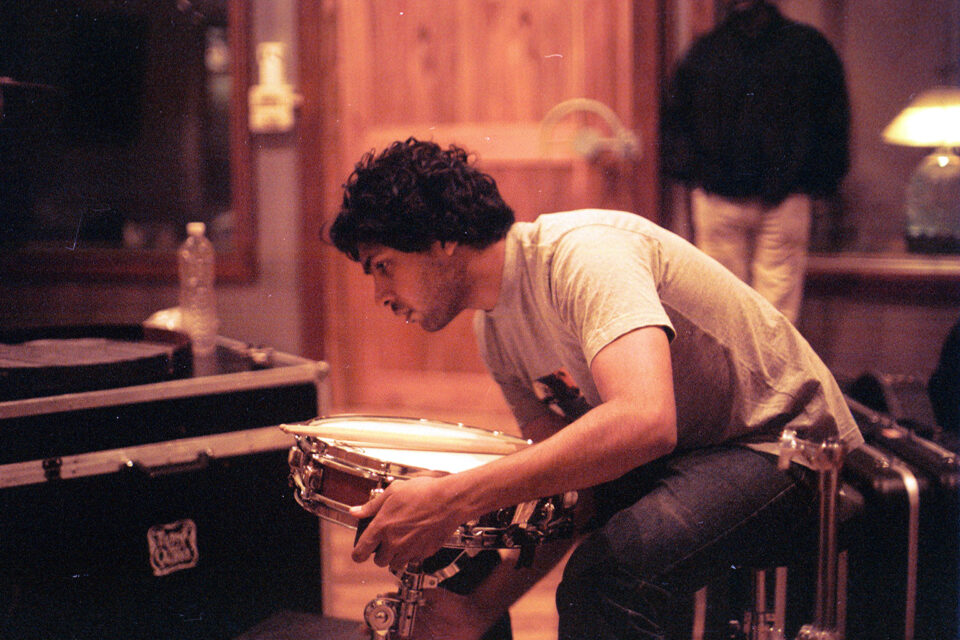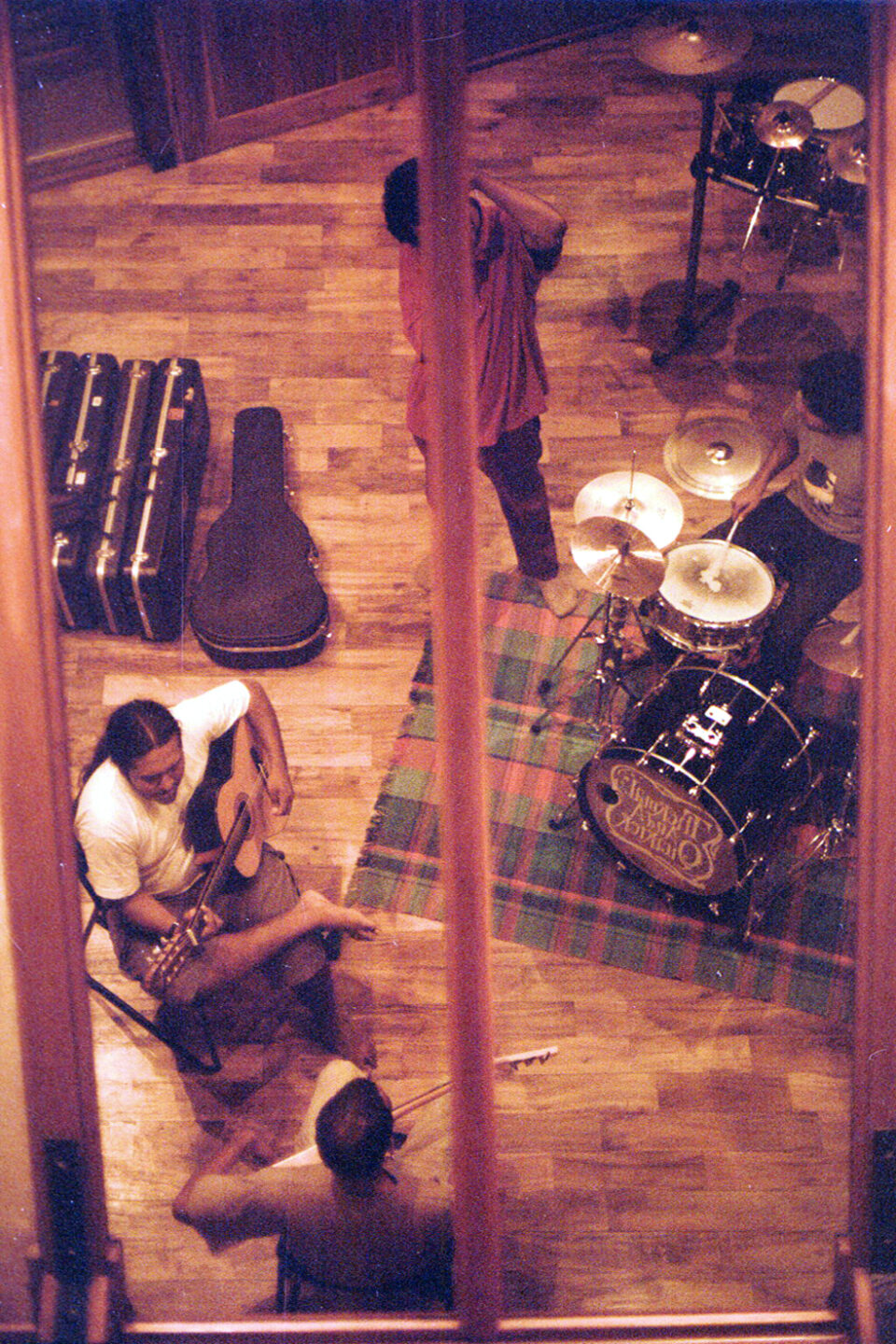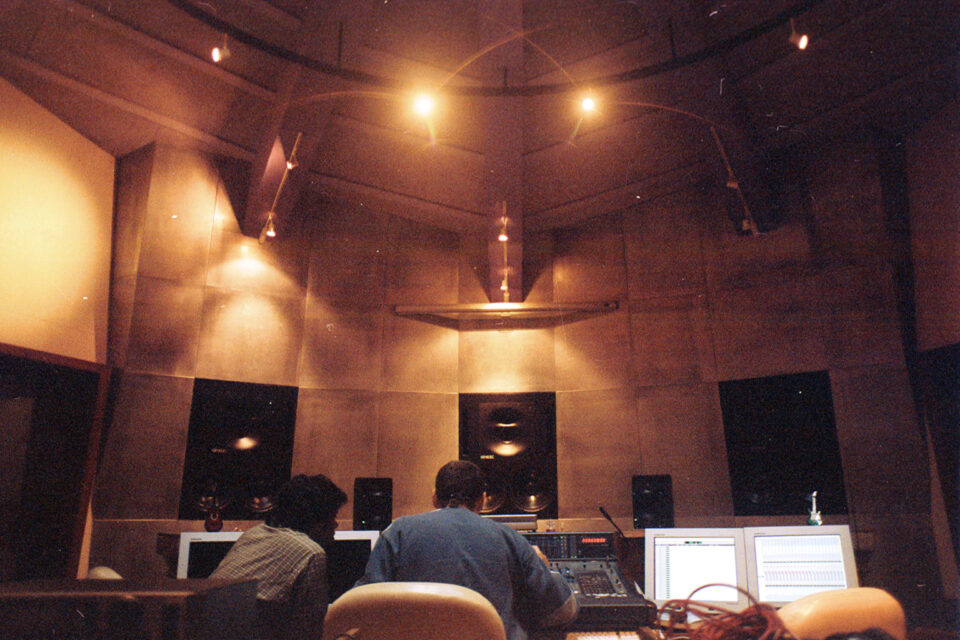Thermal And A Quarter’s ‘Plan B’ Turns 20
Bengaluru rock band look back at their third album which spawned songs like ‘Paper Puli’ and was released online as a free download in 2005

Thermal And A Quarter's drummer Rajeev Rajagopal recording at Mahati Studios in Chennai for their 2005 album 'Plan B.' Photo: Bruce Lee Mani
Bengaluru rock band Thermal And A Quarter’s (TAAQ) third album Plan B released on Jan. 15, 2005 via their website and in a true testament to the band’s forward-thinking, the 10-track full-length was released as a free download and under a modified Creative Commons license.
The band’s vocalist-guitarist Bruce Lee Mani says, “When Rajeev [Rajagopal, drummer] said we should release it for free, I was like are you mad? We were making decent money from gigs and CD sales for back then.” Rajagopal adds, “I think downloading MP3s was already huge by then, with [file sharing network] BitTorrent and all those others, so I thought we should give it away for free.” Mani was eventually convinced and they worked with longtime friends to figure out the ins and outs of uploading an album for download as well as the Creative Commons license. Interestingly, TAAQ’s website also completes 25 years in action this year.
Plan B – which followed their debut 2000 album (called Dotcom) and 2002 concept album Jupiter Cafe – was inspired by the band’s tours around South India, inner turmoil and the Internet age. It was recorded live at the now-defunct Mahati Studios in Chennai [“It’s a parking lot the last time I saw,” Mani comments] with producer Didier Weiss and was mixed at Film City Studios, Hyderabad and mastered by at SoundWizard, Auroville, both by Weiss.
The lineup included Mani, Rajagopal, bassist Rzhude David and guitarist, vocalist and songwriter Rajesh Mehar. Just a few months after Plan B was out, longtime guitarist Tony Das joined as live guitarist. He recalls songs like “Bend The World” being heavy and dexterous but fun to pull off. “When I first got these songs to learn, they were incredible. Some of them, like ‘Paper Puli’ I think they’d been playing live for some time,” Das says.

Among the songs that still remain a staple in TAAQ’s set is “Paper Puli,” which further built on the band’s witty and humorous lyrics and laid it over powerful grooves and threw in plenty of guitar acrobatics for good measure. It opens with Mani speaking about, of all things, music journalism, quoting the inimitable Frank Zappa.
As it turns out, the song was inspired by an encounter with a journalist of a leading newspaper who came to interview the band, only to mouth off a whole lot of unsolicited advice. “He just came in and started talking about how we should sound and what kind of songs we should play. It was one of the interviews where we spoke the least,” Mani says with a laugh. Understandably, the band walked away in total disbelief over what had just transpired. “We don’t know what happened to that journalist or that piece. I don’t think he ever heard the song, either,” Mani adds.
In what perhaps counter-balanced their impression of the Fourth Estate, Thermal And A Quarter were featured on NPR’s acclaimed program “All Things Considered” just as they were recording Plan B in Chennai. They were interviewed by author and musician Jeffrey Pepper Rodgers, who covered considerable ground in the eight-minute episode that spanned the history of the TAAQ, the state of Indian rock in the country in the early 2000s and more. “It came out fairly quickly after the interview,” the frontman adds.

Mani is heard telling NPR about his influences including surf-rock band The Ventures, while David mentions how he chanced upon James Taylor’s Never Die Young album as his introduction to music. Rajagopal discovered the likes of AC/DC once he began following the Grammy awards, and Mehar spoke about his interest in Western music after being a Carnatic vocalist.
At the time of making Plan B, Rajagopal and Mehar still held down jobs in Bengaluru’s burgeoning I.T. sector, while David and Mani were fulltime musicians by then. The album brought in songs like “Chainese Item” which opened with a menu of Indo-Chinese food being read out by what sounds like a restaurant waiter (recording it was Mehar’s idea, Mani says). Then, there’s critiques of urban development (an evergreen topic) on “The Steal.” Mani says, “We would see these highways and flyovers being build when we were on tour and like something straight out of A Hitchhiker’s Guide to the Galaxy, there was a house in the middle of the road that hadn’t budged, and you could tell it was halting the construction of this flyover.” It inspired the lyrics on “The Steal” that go: “‘Cause when the bridges are all done There’ll be no rivers underneath.”
Elsewhere, songs like “Dead Inside” and “Cynical World” were born out of deeply personal experiences, like Mani’s marriage to his now-wife in the face of stiff opposition since they belonged to different communities. Plan B was covering every aspect of the band, from the dark despair to the funny bone to their love for jazz, rock, funk and more. It went on to be referenced in their next album This Is It as well, with the title track seeing Mani playfully musing on TAAQ’s journey. He sings, “Maybe someday, we’ll find Plan B in a hit movie.” It hasn’t happened, yet.
Listen to ‘Plan B’ below.





